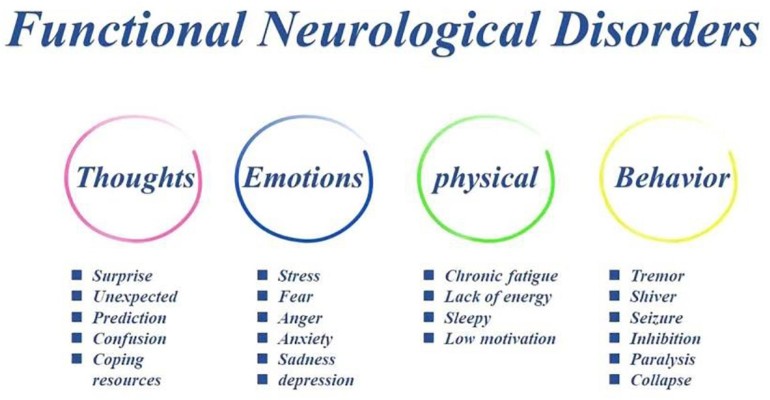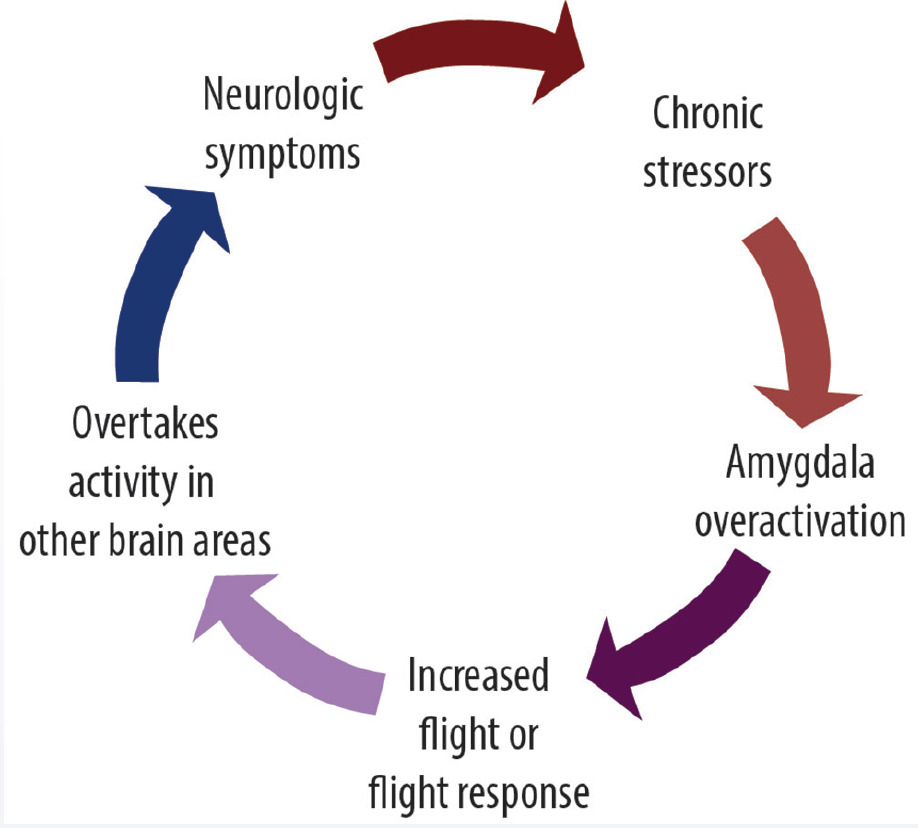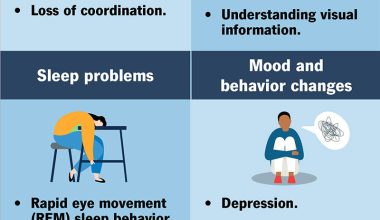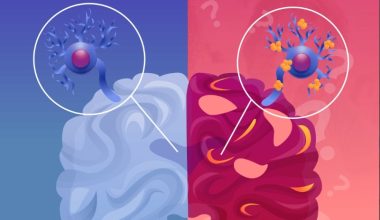As an Amazon Associate, I earn from qualifying purchases
In today’s fast-paced world, stress has become a common companion for many individuals. While occasional stress is a natural part of life, chronic stress can significantly impact our physical and mental well-being. One area where stress can manifest itself is in our neurological health. In this comprehensive guide, we will explore the neurological symptoms of stress, delve into what neurological disorders entail, discuss neurological functional disorders, provide a list of the most common neurological disorders, and outline potential treatment options.
Stress is a prevalent issue in today’s society, with many individuals experiencing its effects daily. While stress is often associated with emotional or psychological strain, its impact can also be felt in a physical sense, particularly in our neurological health. In this blog post, we will take a closer look at the neurological symptoms of stress and how they can affect our overall well-being.
Page Contents
ToggleUnderstanding Neurological Symptoms of Stress
Stress is an inevitable part of life, affecting individuals in various ways. While its psychological impacts are widely acknowledged, its effects on the neurological system are often overlooked. However, stress can manifest in a multitude of neurological symptoms, significantly impacting one’s well-being and quality of life. Understanding these symptoms is crucial for effective management and mitigation of stress-related health issues.
Neurological symptoms of stress can manifest in diverse forms, ranging from mild to severe, and can affect different areas of the nervous system. One common neurological symptom is headaches. Stress-induced tension can lead to muscle contractions in the head and neck, resulting in tension headaches or migraines. These headaches can be debilitating, affecting concentration, productivity, and overall mood.
Furthermore, stress can exacerbate existing neurological conditions such as epilepsy and multiple sclerosis. Increased stress levels may trigger seizures in individuals with epilepsy or worsen symptoms in those with multiple sclerosis. The intricate interplay between stress and neurological conditions underscores the importance of stress management in holistic healthcare approaches.

Moreover, stress can manifest in the form of cognitive symptoms, affecting memory, concentration, and decision-making abilities. Chronic stress has been linked to cognitive decline and an increased risk of neurodegenerative diseases like Alzheimer’s. Understanding the impact of stress on cognition highlights the importance of stress reduction techniques in preserving cognitive function and brain health.
In addition to cognitive symptoms, stress can affect sleep patterns, leading to insomnia or disrupted sleep. Sleep disturbances can further exacerbate stress, creating a vicious cycle that impairs neurological function and overall well-being. Prioritizing sleep hygiene and relaxation techniques can help mitigate stress-related sleep problems, promoting better neurological health.
What Is a Neurological Disorder?
Neurological disorders are ailments that impact the brain, spinal cord, and nerves, disrupting the normal functioning of the nervous system. They can result from genetic factors, traumatic injuries, infections, autoimmune responses, or degenerative processes. These disorders manifest in diverse ways, including cognitive impairment, sensory disturbances, motor dysfunction, and altered behavior.
Common Types of Neurological Disorders:
Migraine: Characterized by severe headaches, often accompanied by nausea, vomiting, and sensitivity to light and sound.
Epilepsy: Causes recurrent seizures due to abnormal electrical activity in the brain.
Alzheimer’s Disease: A progressive neurodegenerative disorder leading to memory loss, cognitive decline, and behavioral changes.
Parkinson’s Disease: Involves the deterioration of dopamine-producing nerve cells, resulting in tremors, stiffness, and impaired movement.
Multiple Sclerosis (MS): An autoimmune disorder causing damage to the protective covering of nerves, leading to communication problems between the brain and the rest of the body.
Symptoms of Neurological Disorders:
1. Headaches.
2. Seizures.
3. Memory loss.
4. Muscle weakness.
5. Numbness or tingling.
6. Coordination problems.
7. Difficulty speaking or swallowing.
8. Changes in mood or behavior.
Treatment Options:
Treatment for neurological disorders depends on the specific condition and its severity. It may include medication, physical therapy, occupational therapy, speech therapy, and surgery. Additionally, lifestyle modifications, such as stress management, regular exercise, and a healthy diet, can help alleviate symptoms and improve overall well-being.
Exploring Neurological Functional Disorders
Neurological functional disorders are conditions that affect the functioning of the nervous system without a clear structural or biochemical cause. These disorders can manifest as a wide range of symptoms, including movement disorders, sensory disturbances, and cognitive impairments. Understanding the underlying mechanisms of neurological functional disorders is crucial for effective management and treatment.

Neurological functional disorders involve aberrations in the processing of signals within the nervous system, leading to a wide array of symptoms affecting movement, sensation, and cognition. Unlike structural neurological conditions, such as strokes or tumors, FNDs do not exhibit detectable abnormalities on standard diagnostic tests like MRI or CT scans. Instead, they often manifest as functional impairments, such as paralysis, tremors, or seizures, which lack a clear organic basis.
Types and Manifestations of FNDs:
Functional Movement Disorders (FMDs): Characterized by abnormal movements or postures, including tremors, dystonia (involuntary muscle contractions), and gait disturbances.
Functional Seizures (Psychogenic Non-epileptic Seizures): Resemble epileptic seizures but lack the abnormal electrical activity in the brain typically seen in epilepsy.
Functional Sensory Symptoms: Present as alterations in sensation, such as numbness, tingling, or loss of vision, without identifiable nerve damage.
Functional Cognitive Disorders: Include symptoms like memory loss, confusion, or language difficulties that cannot be attributed to structural brain abnormalities.
Causes and Contributing Factors:
The etiology of FNDs is multifaceted, involving a complex interplay of biological, psychological, and social factors. Traumatic experiences, chronic stress, emotional trauma, and personality traits may predispose individuals to develop FNDs. Moreover, disturbances in neural circuits responsible for processing sensory and motor information may underlie the manifestation of functional symptoms.
Management and Treatment Approaches:
Effective management of FNDs requires a comprehensive, multidisciplinary approach tailored to the individual’s needs. Treatment may involve a combination of psychotherapy, cognitive-behavioral therapy (CBT), physical rehabilitation, and medications targeting associated symptoms like anxiety or depression. Educating patients about the nature of FNDs and empowering them to participate in their care can also facilitate symptom improvement and functional recovery.
The Most Common Neurological Disorders
Neurological disorders encompass a broad spectrum of conditions, each with its unique set of symptoms and challenges. Some of the most common neurological disorders include epilepsy, stroke, Alzheimer’s disease, Parkinson’s disease, and multiple sclerosis. Recognizing the signs and symptoms of these disorders is essential for early intervention and improved outcomes.
Treatment Options for Neurological Disorders
Treatment for neurological disorders varies depending on the specific condition and its underlying causes. Common treatment approaches may include medication, physical therapy, occupational therapy, speech therapy, and surgical interventions. It is crucial to work closely with healthcare professionals to develop a comprehensive treatment plan tailored to your individual needs.
7. Conclusion
In conclusion, stress can have a significant impact on our neurological health, leading to a range of symptoms that may indicate underlying issues. By understanding the neurological symptoms of stress, what neurological disorders entail, exploring neurological functional disorders, recognizing the most common neurological disorders, and exploring treatment options, we can take proactive steps to safeguard our neurological well-being. Remember to prioritize self-care, seek support when needed, and consult healthcare professionals for guidance on managing stress and promoting neurological health.
As an Amazon Associate, I earn from qualifying purchases







